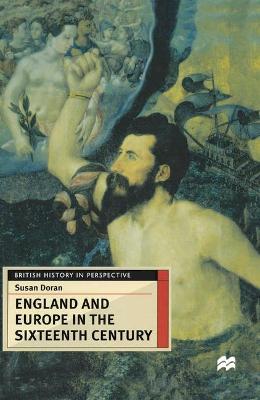British History in Perspective
1 total work
This study provides a thematic survey of English foreign policy in the 16th century, focusing on the influence of the concept of honour, security concerns, religious ideology and commercial interests on the making of policy. It draws attention to aspects of continuity with the late medieval past but argues, too, that the European Reformation brought new challenges which forced a rethinking of policy. Far from treating the 16th century as the period when England began its rise as a great power, the author emphasizes the structural weaknesses of the English armed forces and demonstrates that dangers and insecurities did more to mould foreign policy than the energy and confidence of the Tudor rulers.
